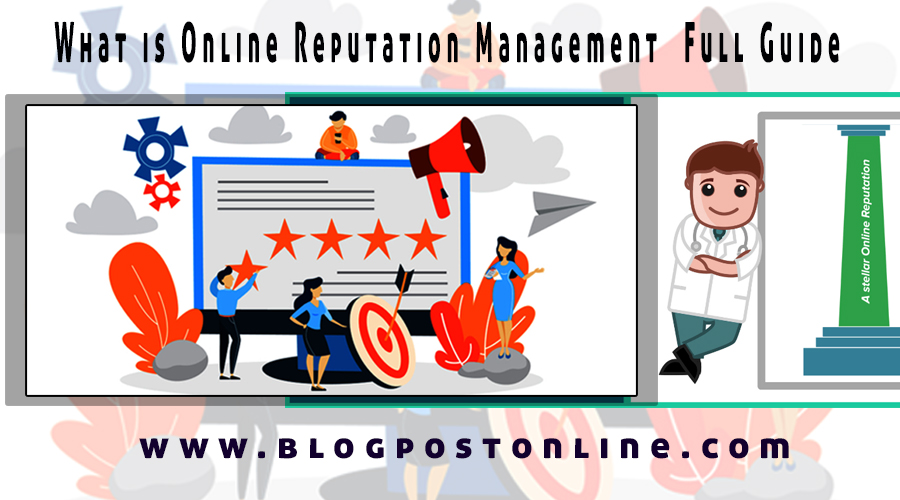Online Reputation Management (ORM) in digital marketing refers to the practice of monitoring, influencing, and managing an individual’s, brand’s, or organization’s online reputation.
It involves strategies and techniques aimed at shaping public perception and ensuring that positive information and content outweigh any negative or damaging information found online.
ORM is particularly important in the digital age, where information spreads rapidly through the internet and social media platforms.

Here are some key aspects of Online Reputation Management:
- Monitoring: ORM begins with tracking and monitoring online mentions, reviews, and discussions related to a brand, individual, or organization. This includes monitoring social media, review websites, forums, news articles, and other online sources.
- Responding to Feedback: Timely and appropriate responses to customer reviews and feedback, both positive and negative, are crucial. Engaging with customers and addressing their concerns can help improve a brand’s reputation.
- Content Management: Creating and promoting positive and high-quality content about the brand or individual can help push down negative search results and improve the overall online image. This might include publishing blog posts, press releases, and other content that showcases the brand’s strengths and achievements.
- Search Engine Optimization (SEO): SEO plays a significant role in ORM. Optimizing online content and websites can help ensure that positive and relevant information appears prominently in search engine results while pushing down negative content.
- Social Media Management: Maintaining an active and positive presence on social media platforms is essential. It allows brands and individuals to engage with their audience, share positive news, and respond to queries and concerns.
- Crisis Management: ORM is also about handling online crises effectively. When negative information or a reputation-damaging event occurs, having a well-defined plan to address and mitigate the issue is critical.
- Review Management: Encouraging satisfied customers to leave positive reviews on review websites and addressing negative reviews professionally can have a significant impact on reputation.
- Online Privacy: Protecting personal and sensitive information from being shared online is essential. Implementing privacy settings and measures can help prevent reputation-damaging incidents.
- Legal Action: In some cases, legal action may be necessary to remove or address defamatory content. Consultation with legal experts may be required.
If you want learn Best Forex Trading Statergy with Chart pattern Technical analysis than visit here.
Online Reputation Management is not just about suppressing negative information but also about fostering a positive and authentic online image. It is an ongoing process that requires consistent effort and attention to ensure that an individual or brand’s reputation remains favorable in the digital realm.